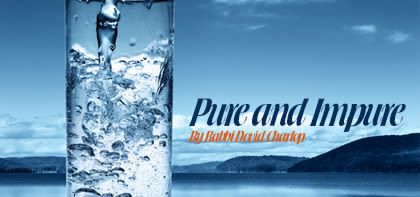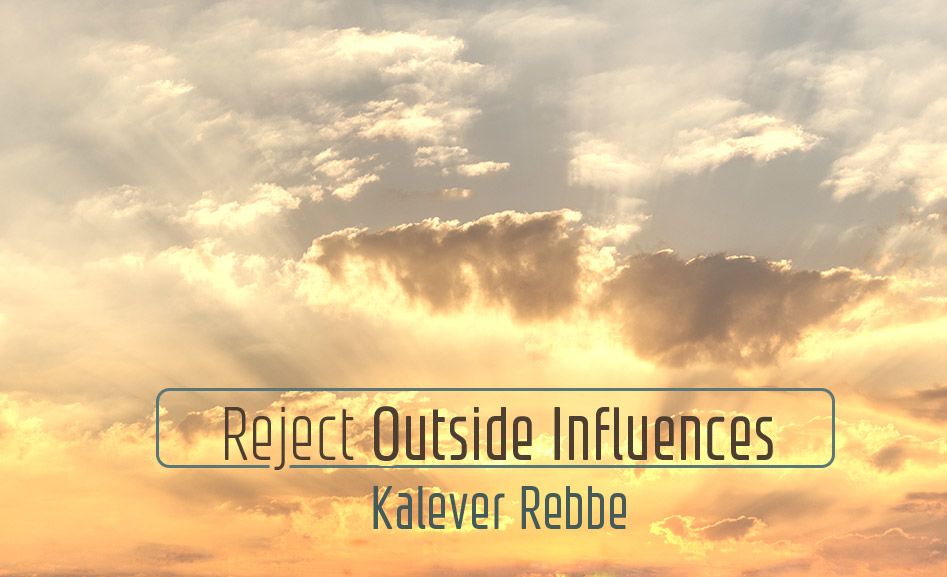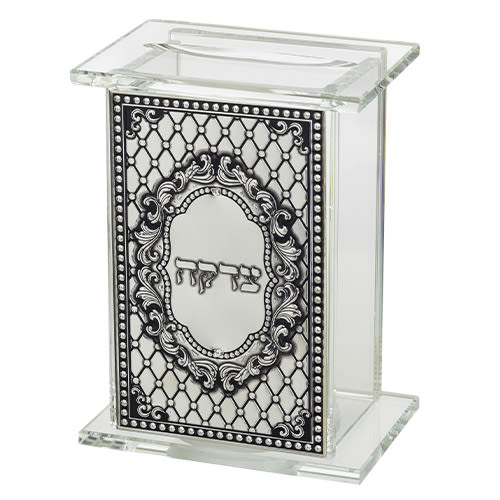
Pure and Impure
A life of purity necessitates us to distance ourselves from impurity as an intrinsic part of becoming a holy people. It has nothing to do with being physically dirty or soiled...

What does a student of the Torah do when the relevance of certain sections of the Chumash is hard to find? Hashem didn’t write anything unnecessary but certain topics seem to relate to a period of time hundreds, if not thousands, of years ago.
In Leviticus, extensive details are given about the laws of Tumah and Taharah (purity and impurity). The list of situations that cause Tumah and Taharah are enumerated but with all of the discussion of these laws it’s difficult to understand how they relate to us today. Practically speaking, except for the laws of family purity, the laws of Tumah and Taharah have no concrete, practical application. However, for a student of Hashem’s timeless Torah it is axiomatic that there are lessons to be found in these readings even today. What could these lessons be?
The Torah obligates us to distinguish between the impure and the pure (Lev. 11:47). What is the goal of that separation? The Torah also describes our lofty task as a people: “I am Hashem who brought you up from the land of Egypt to be for you a G-d, and you should be holy because I (Hashem) am holy” (ibid, 45). A life of  purity necessitates us to distance ourselves from impurity as an intrinsic part of becoming a holy people. It has nothing to do with being physically dirty or soiled. If so, what does happen to us when we are in contact with what the Torah prescribes as impure and what spiritual benefit do we gain through a life of purity?
purity necessitates us to distance ourselves from impurity as an intrinsic part of becoming a holy people. It has nothing to do with being physically dirty or soiled. If so, what does happen to us when we are in contact with what the Torah prescribes as impure and what spiritual benefit do we gain through a life of purity?
What does the Torah define as impure? Rabbi S.R. Hirsch, the great leader of German Jewry in the 19th century, elaborates the numerous categories of purity and impurity and their inter-connection. Impurity can be caused by two basic situations: our contact with impure items outside of us and those which emanate from within us. The most intense type of exterior impurity is contact with a human corpse. The sub-categories of external impurity, including various animal carcasses, primarily share the common thread of coming in contact with death. Internal impurity varies but the common thread is that there is something that emanates from the body, blood or other discharges, which are either involuntary or semi-involuntary (a man’s sexual discharge, birthing, menstruation, etc.). What is the connection between these two general categories of impurity and what do they teach us about impurity in general?
Man is composed of two basic components, the soul and the body. Each has its own rules and reality. The eternal soul yearns to express itself and come close to its Creator. It is not limited by time and space although it is found in this material world. The body, on the other hand, is very much finite. Of course the physical world is an essential part of Hashem’s world, but when we define our existence in bodily terms we are reduced to little more than educated monkeys (and sometimes fairly primitive!). Ultimately man is a composite and must decide which is his true identity, the body or the soul. Who will be the “front runner” l determines our relationship to ourselves and our world.
If we see ourselves as essentially spiritual beings enwraped in our bodies, we can joyously take on the task of rectifying and uplifting the physical world. With our souls as our essence, we can touch the Heavens and reach our goal of being a holy nation. On the other hand, when we view ourselves as basically physical creatures we become little more than primates empowered by a force called the soul. The latter view and misconception will cause us to fall short of our national calling-“you should be holy!”.
But there’s one very important step that must be dealt with on our path to holiness. On a theoretical plane it’s hard enough to keep our priorities straight as to who and what we really are. But living in the physical world makes keeping our priorities straight doubly challenging. When one comes in contact with the dead it’s hard not to think “eat, drink, for tomorrow we die”. We are experiential beings who are intensely effected by our surroundings. Death makes us feel that we are ultimately limited and we may come to think of ourselves as “stuck” in the physical cycle of life and death with little real-life opportunity to choose life-a spiritual life, a holy life. Our understanding of who we are gets blocked by the experiential impact of death.
Similarly the internal impurity that emanates from our bodies parallels the external impurity. Occasionally we experience the control our bodies have over our minds with the possible outcome of clouding the vision of our essence. The cycles of physical life are part of Hashem’s miraculous world but the Torah warns us that the world of “nature” may cause us to feel that we’ve lost a certain amount of control and free choice in our struggle to develop our spiritual essence.
This is what the Torah’s definition of impurity is. In Hebrew the word for impurity is Tumah. The grammatical root of the word means to be blocked. Conversely the Torah’s word for purity is Tahorah (which relates to the word Tzohar like the window in Noah’s ark) the profound clarity of who we really are. Impurity and purity, Tumah and Tahorah, are terms used to explain the two possible states of being in our relationship to this world. Do we block Hashem’s light by allowing the forces of “nature” control our thinking or are we windows letting in the light in all its purity?
Going back to our original question, what is the relevance of the laws of purity and impurity today? Practically speaking, the concrete expressions of these laws are limited but the message and lessons couldn’t be more relevant. External impurity (war, death, killing) and internal impurity (“uncontrollable” physical drives and cycles) define so much of the bombardment to our consciousness in today’s world. The Jewish people need to be aware of the messages of the world around us and simultaneously not fall prey to losing our sense of who we truly are.
So purity and impurity, external and internal, are not issues of hygiene and cleanliness. Nor are they states of being bad or good. They are subtle concepts that reflect the lofty task of the Jewish people. Use this world, uplift this world, see and breathe the sanctity of Hashem’s world. Only be aware that involvement in the physical world may cause distortions of the truly spiritual beings we are. We have the ability within us to walk life’s tightrope; of using and balancing the potentially conflicting aspects of our being and harmonizing them to make the world a place where Hashem’s presence is manifest.
* * *
Rabbi Dovid Charlop is on the teaching staff of the Neve Tzion Yeshiva in Telzstone, Israel.









Tell us what you think!
Thank you for your comment!
It will be published after approval by the Editor.